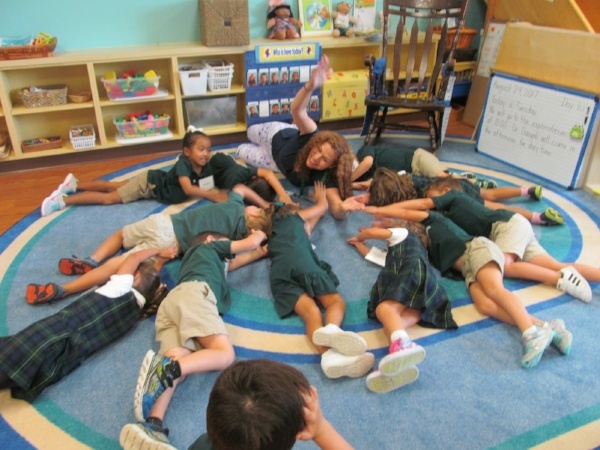Shorecrest is committed to supporting good communication habits among students and their families beginning in the Experiential School and continuing past graduation. As Headmaster Mike Murphy writes, “The importance of teachers, coaches, and parents having close, positive, and trustful relationships with students and teens cannot be over-emphasized. At the same time, the importance of having appropriate boundaries in those relationships is critical. The great parent, teacher, and coach knows how to maintain those boundaries while developing a positive relationship with a younger person. Knowing how to work together, and making sure that others are included is important. Teaching and learning how to move in and out of roles as the leader, the follower, the team member, and independent practitioner all help prepare our children for adulthood. Adults need to model for their children how to have positive relationships with peers, and while doing so, need to encourage their children to develop strong relationships with their own age group.”
Recently, Shorecrest welcomed Dr. Sherri Danyali as the new Director of The Experiential School of Tampa Bay. One of Dr. Danyali’s goals is to help students self-actualize, and to educate parents in methods that support children’s beneficial development and well-being. Her emphasis on responsive communication in the preschool classroom bolsters Shorecrest’s dedication to supporting students’ social and emotional development at all levels.

Dr. Danyali has concrete methods for modeling good communication to her three and four-year-old students in Alpha and Junior Kindergarten. She says, “at school, we intentionally use language that helps a child understand how to treat others and what her role is in playing, learning, and doing. For example, if a child is upset, I might say: I notice that you look sad. I see tears on your cheeks. What is making you feel that way?; or, I might mirror back the expression on the child’s face and say: I see your eyebrows and mouth look like this, are you angry?.”
Dr. Danyali notes that if you spend time in Alpha and Junior Kindergarten classrooms, you will notice the Experiential School faculty validating student’s feelings, guiding children through problem-solving, and supporting children’s growth in their social interactions and participation. The following techniques from The Responsive Classroom, an approach used at Shorecrest, offer guidance:
- Clearly communicate the desired behavior or expectation
- Acknowledge a child’s feelings by responding with empathy
- State facts about responsibilities, choices, and behaviors
- Describe what you see or the problem
- Show faith in a child’s abilities and potential
Responding to a young student’s emotions in this way usually inspires cooperation or changes undesirable behavior. Our teachers consistently model empathy, so that our students learn to cooperate with and relate to each other.
To see how our faculty and staff support student development at all stages of our preschool through high school campus, please schedule a personal tour. We can't wait to welcome you!

















